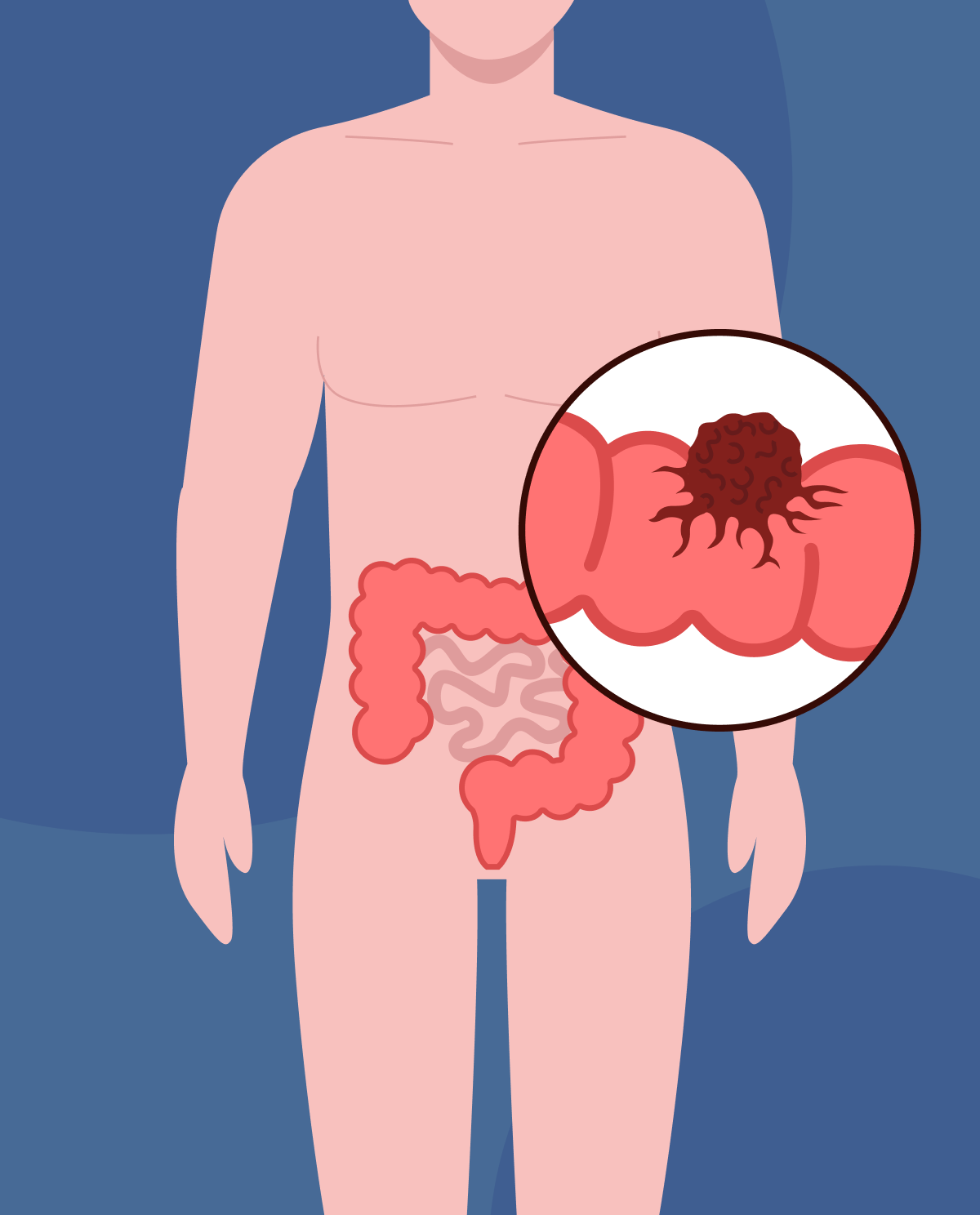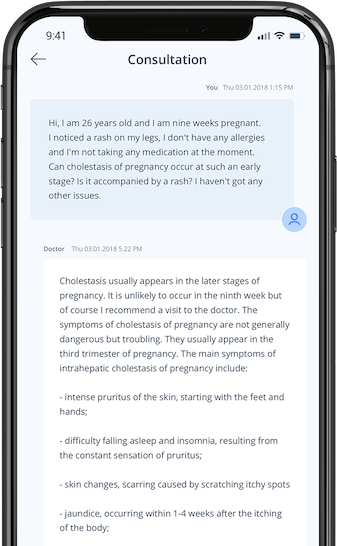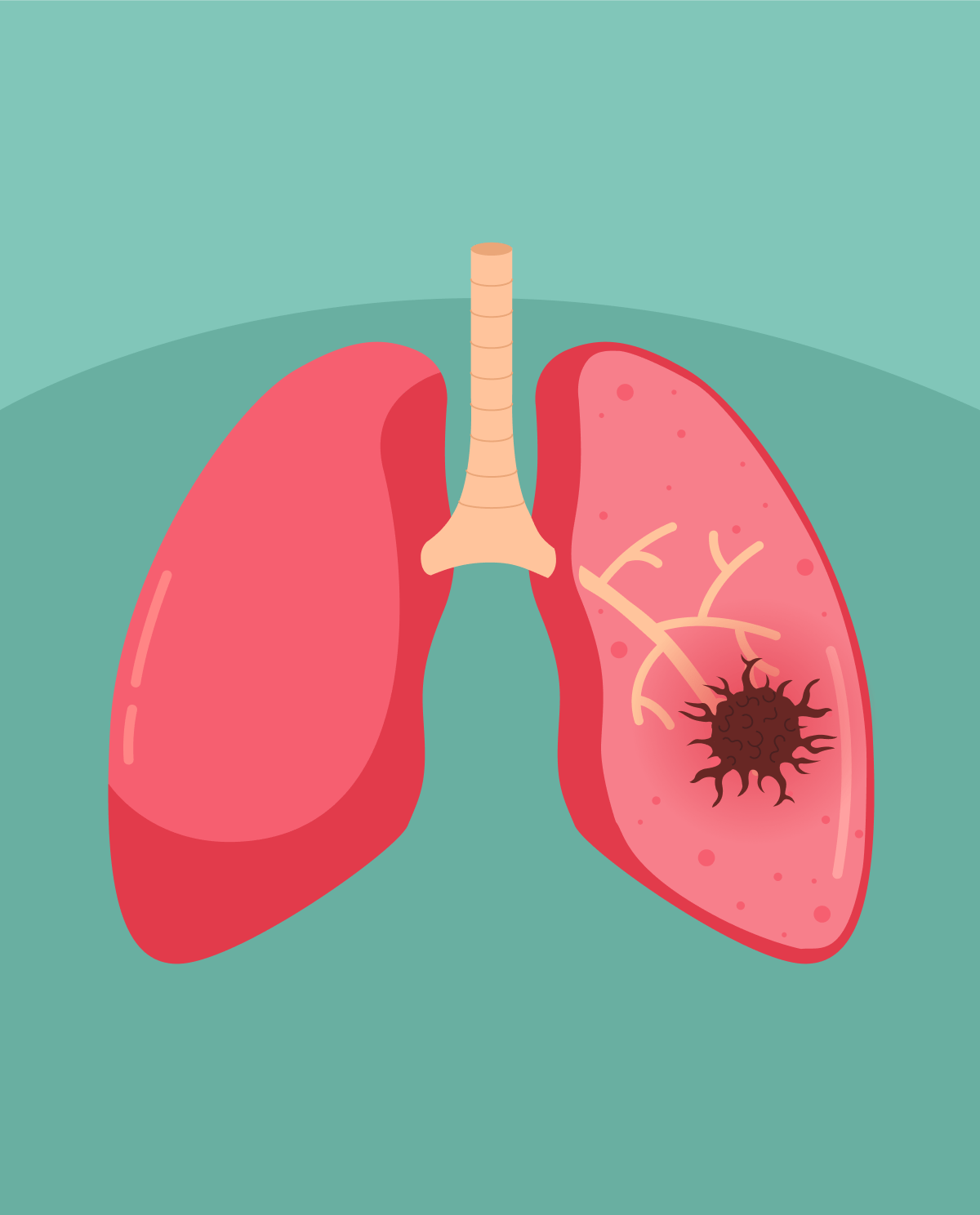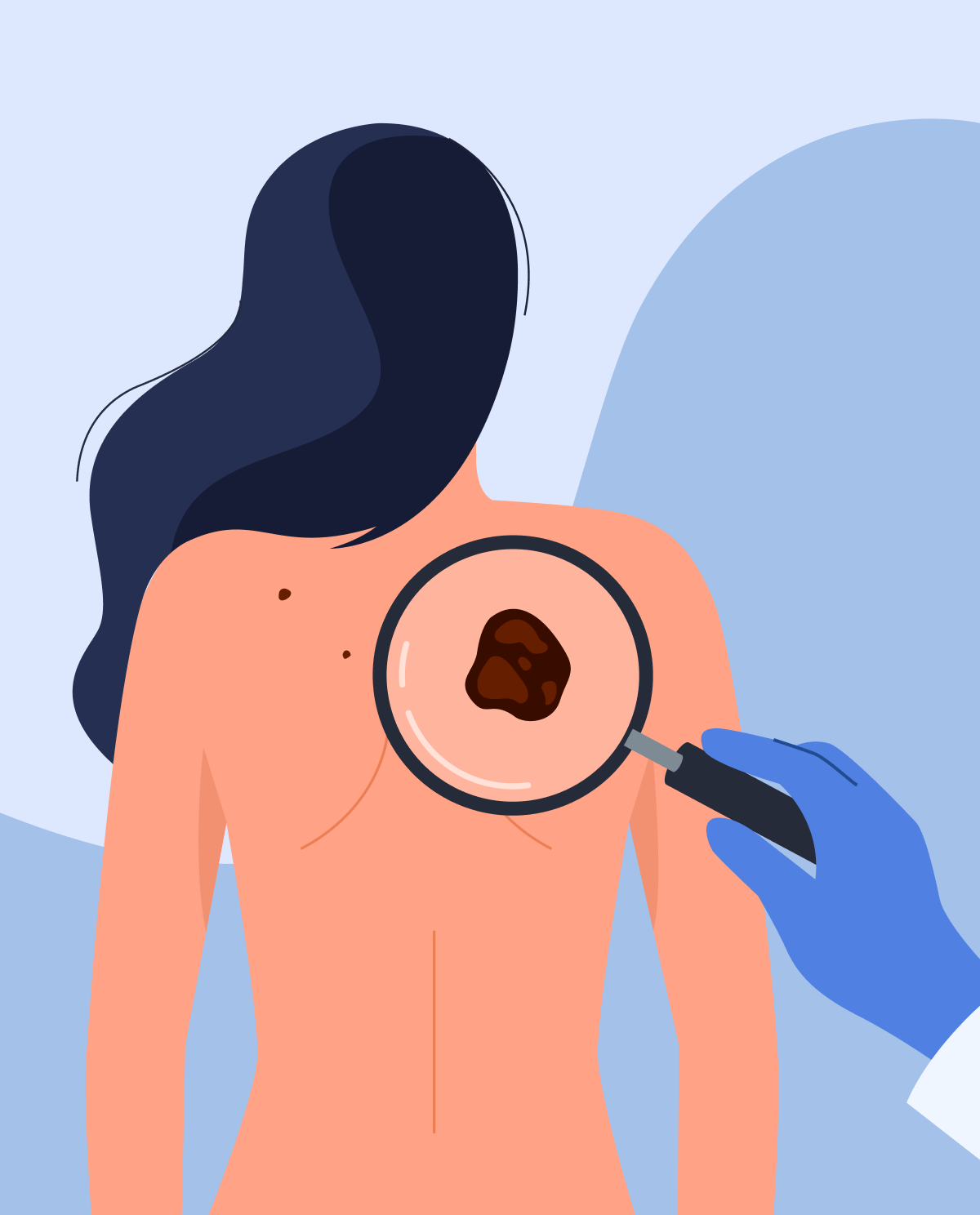Causes and risk factors associated with CRC
Causes resulting in the development of cancer
Like all cancers, CRC develops after cells undergo DNA mutations to then become malignant. The DNA provides instructions to regulate the activities of a cell, such as growth and division. Normally, healthy cells divide in an orderly way to assist the proper functioning of the body. But if a cell's DNA undergoes damage, it can start dividing uncontrollably, and resist auto-cell death. This uncontrolled division can cause the cells to pile up and develop into a tumor. As time passes, the cancerous cells can spread to other parts of the body, damaging healthy tissues in the process. This spreading of cancerous cells to other areas is referred to as metastasis.
Risk factors of CRC
- Age: although CRC can occur at any age, it usually presents itself in patients over the age of 50.
- Family and personal history: the probability of having CRC increases if a direct relative has the disease. If the patient has a history of colon polyps or previously treated colorectal cancer, the chances of having the disease increase.
- Race: African Americans have been shown to be at an increased risk of developing CRC.
- Inflammatory diseases: chronic inflammation of the colon (ulcerative colitis and Crohn’s)
- Syndromes such as Lynch syndrome and FAP (familial adenomatous polyposis) greatly increase the development of CRC.
- Diet and sedentary life: a diet high in fats and low in fiber has been associated with the illness.
- Other: diabetes, smoking, obesity, alcohol consumption, and so on.
Symptoms of CRC
- Changes in bowel movement (diarrhea or constipation),
- Bloody stool,
- Iron deficiency anemia,
- Generalized weakness and fatigue.,
- Abdominal symptoms (bloating, cramping, pain).
Diagnostic methods
After taking a thorough patient history and physical exam, here are the gold standard tests for diagnosing CRC:
- Colonoscopy and biopsy.
- Fecal occult blood test (testing for blood in stool).
Treatment methods
- Surgery can be used in the early stages to remove polyps and resect the mucosa (inner lining) but it can also be used in more advanced stages of the illness in which larger portions of the colon are removed.
- Other treatments include chemotherapy, radiation therapy, immunotherapy, and immunotherapy.








